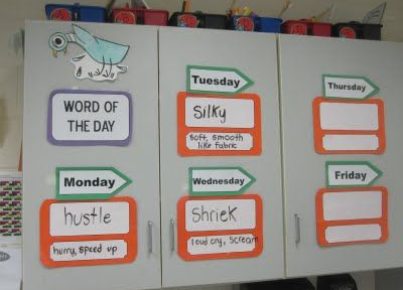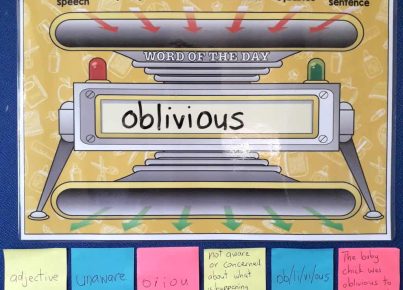In an increasingly complex and language-rich world, vocabulary development is a critical aspect of a student’s educational journey. Teachers across the globe continually seek innovative strategies to enhance their students’ language proficiency. One particularly impactful approach is the ‘Word of the Week’ initiative—a method that has transformed traditional vocabulary teaching into an interactive and inclusive classroom activity.
The ‘Word of the Week’ strategy is simple yet powerful. Each week, educators introduce a new word to their students, carefully selected to challenge their existing language skills and complement their learning objectives. The word is then explored in detail throughout the week, integrating its meaning, usage, and nuances into various subjects and classroom discussions.
This strategy has multifaceted benefits. Firstly, it exposes students to advanced diction that they might not encounter in everyday speech or standard textbooks, thus broadening their linguistic horizons. By encountering these words repetitively in different contexts—be it during a history lesson, a creative writing exercise, or a scientific experiment—students can internalize them more effectively than through rote memorization alone.
Moreover, ‘Word of the Week’ promotes curiosity and enthusiasm for learning new terms. Educators often turn this endeavor into a collaborative process, encouraging students to research the word’s etymology, identify synonyms and antonyms, or even create art or drama pieces that embody its meaning. This multidisciplinary approach ensures that all types of learners can engage with and appreciate the richness of language.
To further cement understanding, teachers may involve students in crafting sentences using the weekly word or suggest they keep personal vocabulary journals where they record new words learned along with their definitions and examples of how they can be used. This ongoing project not only serves as a reference tool for students but also helps educators monitor individual progress.
Incorporating technology has also given this tactic a contemporary twist. Digital platforms allow for interactive vocabulary exercises, online quizzes, and even virtual word walls where students can add their contributions. By integrating technology, learners become active participants in their linguistic advancement outside of traditional classroom settings.
The impact of expanding vocabulary reaches beyond purely academic advancements; it plays an essential role in effective communication and critical thinking. A robust vocabulary equips students with the ability to articulate their thoughts more clearly and comprehend complex texts with greater ease—skills imperative for success in higher education and professional life.
In conclusion, the ‘Word of the Week’ strategy is more than just a weekly routine; it’s an investment in students’ future eloquence and cognitive capability. By actively incorporating this method into classroom practices, educators are not only enriching their students’ vocabularies but also fostering a lifelong love for words and their power to express, persuade, and enlighten.





